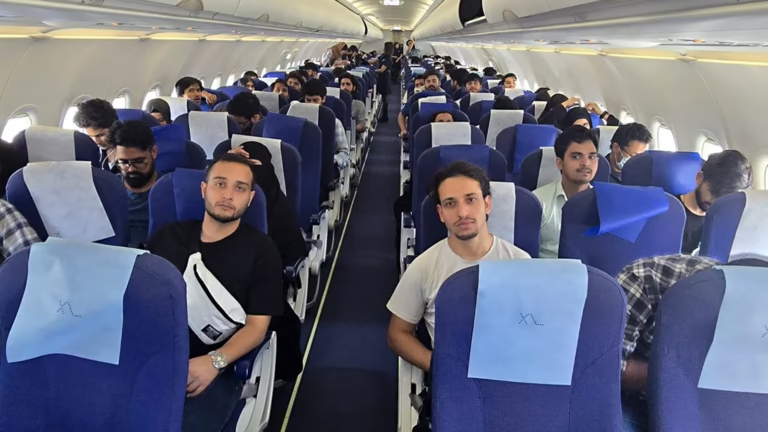North Korea Claims 1.4 Million Young People Joined Its Army in a Week: What’s Really Happening?
Summary
North Korea has made a bold and alarming claim that 1.4 million young people have enlisted in its army within the span of a week. This development raises many questions about the motivations behind such recruitment drives, the credibility of the numbers, and the implications this has on regional and global stability. While Pyongyang often utilizes such announcements for propaganda, the international community must consider the potential threat behind these actions as tensions in the Korean Peninsula continue to rise.
Introduction: An Eye-Catching Announcement
When North Korea makes headlines, it’s usually for bold statements or military provocations, and this time is no different. The regime has announced that over a million young people joined the North Korean army in just one week. Yes, you read that right: 1.4 million new recruits, according to North Korea’s state media.
But before you jump to conclusions, let’s break down what’s really going on here. Is this number accurate? What does it mean for the region, and how is the international community reacting? North Korea’s military buildup is nothing new, but such large-scale enlistments, if true, could signal a shift in Pyongyang’s military strategy or be an elaborate propaganda move aimed at bolstering internal morale.
A Propaganda Machine in Overdrive?
North Korea has a long history of making extravagant claims. From boasting about its nuclear capabilities to asserting that its leaders have near-mythical powers, Pyongyang has perfected the art of propaganda. So, when the state-run Korean Central News Agency (KCNA) released the statement that 1.4 million youths have joined the military in just one week, many outside observers took the news with a grain of salt.
What’s the Real Story?
One of the main reasons for skepticism is the sheer number involved. Mobilizing such a massive number of people in such a short amount of time would be a logistical nightmare, even for a well-organized military. For North Korea, a country that has been struggling economically due to sanctions and the ongoing global pandemic, this figure seems even more improbable.
However, North Korea’s claims might not be entirely baseless. The regime has been known to initiate nationwide campaigns that pressure citizens into showing loyalty to the government, especially during times of heightened international tension. These enlistments could be part of a broader show of strength aimed at the country’s adversaries, particularly South Korea and the United States.
Why Now? Timing is Everything
To understand why North Korea is making such bold statements now, it’s important to look at the broader geopolitical context. Over the past few months, tensions on the Korean Peninsula have been escalating, with North Korea conducting missile tests, issuing threats, and showing its military muscle. At the same time, the U.S. and South Korea have been increasing their joint military exercises, signaling to Pyongyang that they are ready to respond to any potential aggression.
In this high-stakes environment, North Korea’s announcement can be seen as an attempt to demonstrate strength and rally its population. By claiming that 1.4 million youths are ready to fight, Pyongyang is sending a message to the outside world: we are prepared for war, and we have the manpower to back it up.
But is that really the case?
The Reality of Life in North Korea: Pressure to Enlist
To understand why so many people might be joining the army (or at least being reported as doing so), we have to look at life inside North Korea. The country’s population is heavily controlled by the government, and citizens are often pressured to demonstrate loyalty to the regime in very public ways. For young people, joining the army is one way to show patriotism and secure a better standing in society.
National Pride or Forced Recruitment?
In many cases, enlistment in North Korea is not entirely voluntary. Reports from defectors and analysts suggest that individuals are often coerced into joining the military, especially during major recruitment drives like the one currently being reported. Families are pressured to send their children to the military, and those who refuse may face repercussions, such as losing access to food rations or other critical services.
This tactic is not unique to North Korea. Many authoritarian regimes use the threat of punishment to ensure participation in national efforts, and in North Korea, the military is one of the most important institutions in maintaining the regime’s power.
What Does This Mean for the Korean Peninsula?
So, what’s the big picture here? If North Korea is truly ramping up its military with 1.4 million new recruits, this could pose a serious threat to regional stability. Even if the number is exaggerated, the message is clear: North Korea is ready and willing to defend its regime at all costs.
Military Buildup: A Threat to Peace?
The Korean Peninsula has long been a flashpoint for international tensions. With North Korea continuing to develop its missile and nuclear capabilities, any sign of military escalation is taken very seriously by its neighbors and the global community. While the actual military threat posed by these new recruits may be minimal, the perception of North Korea’s growing military power could lead to increased tensions in the region.
The International Response
The international community, particularly the U.S. and South Korea, is watching North Korea’s actions closely. Military drills and exercises on both sides of the 38th parallel have become more frequent in recent months, as both sides seek to display their military capabilities.
The U.S. has long maintained a policy of deterrence when it comes to North Korea, using a combination of military preparedness and diplomatic pressure to keep Pyongyang in check. But with each new announcement from North Korea, the stakes grow higher.
What’s Next for North Korea and the Region?
It’s impossible to predict exactly how the situation on the Korean Peninsula will develop, but one thing is clear: North Korea is not backing down. Whether or not the country’s claims of 1.4 million new recruits are accurate, the regime is clearly intent on projecting an image of strength and defiance.
The Role of Diplomacy
While military posturing continues, there’s still a chance for diplomacy to play a role in resolving the tensions on the Korean Peninsula. The U.S., South Korea, and other regional powers have long sought to engage North Korea in dialogue, though these efforts have often been met with resistance from Pyongyang.
If diplomacy is to succeed, it will require a delicate balance of pressure and incentives. North Korea’s leadership has shown time and again that it is willing to endure economic hardship and international isolation to maintain its grip on power. But with growing economic difficulties at home, there may be opportunities for dialogue that could help ease tensions and avoid further escalation.
Conclusion: A Show of Strength or a Cry for Help?
North Korea’s claim that 1.4 million young people have joined its army in a week is a bold statement, but the truth is likely more complex. While it’s possible that many young people have been pressured into enlisting, the figure may be inflated for propaganda purposes.
At the same time, the international community must take North Korea’s actions seriously. Even if the numbers are exaggerated, the underlying message is clear: North Korea is ready to defend its regime, and it is willing to escalate tensions if necessary.
The path forward will require careful diplomacy, a commitment to deterrence, and a deep understanding of the complex dynamics at play on the Korean Peninsula.
FAQs
- Is North Korea’s claim of 1.4 million recruits realistic?
The figure seems exaggerated, but it reflects the regime’s effort to project military strength, likely for propaganda purposes. - Why is North Korea making this announcement now?
This claim comes amidst rising tensions on the Korean Peninsula, as the U.S. and South Korea increase their military presence in the region. - How does North Korea’s recruitment drive impact the region?
Whether real or exaggerated, this announcement sends a message of readiness for conflict, potentially increasing tensions with neighboring countries. - What role does propaganda play in North Korea’s military claims?
North Korea frequently uses propaganda to show strength and rally internal support, often inflating figures or making bold military claims. - What is the international community’s response to North Korea’s actions?
The U.S., South Korea, and other global powers are closely monitoring the situation and continuing military exercises to deter North Korean aggression.



